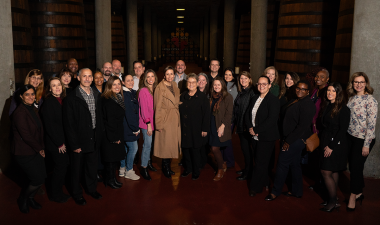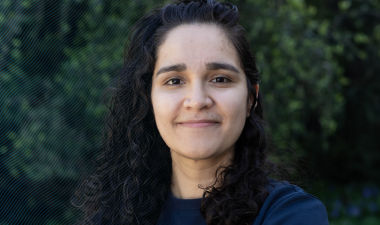When history professor and professional musician Kim Nalley speaks or sings about the racism Black people have endured, she frequently makes people uncomfortable. That’s when she knows she is making a difference.
“Being uncomfortable, forcing yourself to see things differently and entertain the idea that you are not always right, that’s when you learn,” said the jazz and blues vocalist who teaches history at Cal State East Bay.
Nalley is hoping to bring both discomfort and learning to Stanislaus State’s Snider Recital Hall at 1 p.m. on Friday, Feb. 25, when she appears as the third presenter in the University’s Black Musicians Matter Series.
Started in 2020, the series is a forum for sharing the contributions, hopes and struggles of Black American musicians. It includes lectures, master classes and inspirational talks. Due to COVID-19, Nalley’s address will be the first in-person presentation since the series began. Information on how to attend or watch the livestream is available online.
“I perform because I love it, and I feel compelled to do it. Telling me not to do it would be like telling a bird not to sing.”
-Kim Nalley, Historian, Jazz and Blues Vocalist
An accomplished jazz and blues vocalist with a 3½-octave range, Nalley says she followed a difficult, circuitous path that took her “from the projects to a Ph.D.” Holding a bachelor’s degree, master’s degree and doctorate from UC Berkeley, she calls African American history, cultural history and music history her “sweet spot.”
Nalley’s presentation will address the experiences of Black musicians and the range of concerns they face today, from exploitation by the recording industry to sexual harassment of female performers to the loss of work opportunities for local musicians due to streaming apps and technology.
“There was a time when you could find live music in upscale restaurants, bars, even Nordstrom. You could be a blue-collar musician because you could get work performing. All of that is drying up now,” she said. “That world is a world that is gone. It was the world of my youth.”
She also expects to talk about the ramifications Black musicians can experience when their performances describe the violence, injustice and oppression people of color suffered.
“Our Blackness makes white people uncomfortable. If you speak out and you speak out too loudly about the Black experience, you will experience repercussions,” she said. “This is a very big problem for the Black musician because the best performances come from personal experiences.”
Despite the challenges of being a Black musician, Nalley can’t imagine not expressing herself through music and making emotional connections with her audience. She says it is part of who she is, and she fully expects her Black Musicians Matter talk at Stan State to include a song or two.
“I perform because I love it, and I feel compelled to do it,” she said. “Telling me not to do it would be like telling a bird not to sing.”



